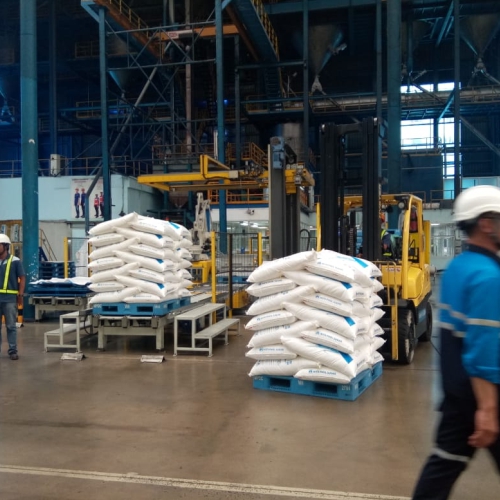New Delhi [India], January 16 (ANI): Marketing of agricultural products by growers at individual level in general tends to be less efficient and the government believes cooperatives can play a crucial role in supporting farmers in getting remunerative prices, said secretary to the ministry of cooperation Gyanesh Kumar.
On January 11, the Union Cabinet, chaired by Prime Minister Narendra Modi, approved the setting up of a national-level cooperative society for organic products under the Multi State Cooperative Societies (MSCS) Act, 2002, with support from relevant ministries following the principle of ‘Whole of the Government Approach’. The government thinks it is imperative for cooperatives to think globally and act locally to leverage their comparative advantage.
“We have market, we have demand from consumers in terms of its health benefits. If you directly want benefits to reach farmers then cooperatives are crucial,” he said on Monday at a meeting with various stakeholders.
Further, citing an example about the difference in prices between organic and normal wheat, which is about Rs 20-25, he said this is where the role of cooperatives comes into play so that the farmers get additional value for their produce.
The cooperative society will manage various activities related to the organic farming sector by providing certified and authentic organic products, unlocking the demand and consumption potential of such products both in India and overseas, besides branding and marketing through facilitation, testing and certification at affordable cost, among other related aspects.
The cooperative is named National Cooperative Organics Limited and has five promoters — Gujarat Cooperative Milk Marketing Federation (which sells its products under brand Amul), National Agricultural Cooperative Marketing Federation of India (NAFED), National Consumers Federation of India (NCCF), National Dairy Development Board (NDDB), and National Cooperative Development Corporation (NCDC), the secretary said. NDDB is the chief promoter.
The cooperative society will have an authorised capital of Rs 500 crore, though it will be established initially with Rs 100 crore (Rs 20 crore by each promoter). Initially, its registered office will be at NDDB’s head office in Gujarat’s Anand.
The size of the global organic produce market is estimated to be worth Rs 10 lakh crore, of which India’s contribution is Rs 27,000 crore.
Demand for organic products has been constantly rising worldwide and India has got what it needs for it to grow manifold. In terms of consumption, the US, Canada, Germany, and China are among the top consumers.
It is estimated that this sector globally has the potential to grow at 15 per cent annually. For India, it is about 20-25 per cent.
In terms of area under cultivation in organic, Australia is the largest, followed by Argentina and India. The highest number of farmers, however, is from India and thus has a huge potential to expand its footprint.
On what the government plans to do to raise the area and productivity for organic crops in India, the secretary said he believes the entire ecosystem will evolve with the improvement of proper marketing. (ANI)












